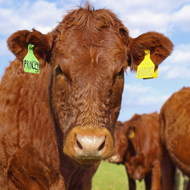
Environment secretary announces plans to eradicate disease by 2038
The Government has been criticised by the BVA after it failed to consult with them over its strategy to wipe out bTB in England over the next 24 years.
Environment secretary Owen Paterson announced plans on Thursday which included continuing pilots of badger culls in Somerset and Gloucestershire.
But he said that in line with the recommendations of an independent expert panel, a decision as to whether to roll out badger culls across the rest of England would not be made until next year.
That is because the panel recommended changes to the pilot schemes to make the culling more humane and improve its effectiveness. Those changes are to be monitored before further decisions on badger culling are made.
Mr Paterson said the strategy to wipe out the disease will include strengthening cattle movement controls, a grant funded scheme for badger vaccination projects, investment in developing a vaccine for cattle, and improving farm biosecurity.
"Bovine TB is a terrible disease which is devastating our cattle and dairy industries and causing misery for many people in rural communities. We need to do everything we can, as set out in our strategy, to make England TB free," Mr Paterson said.
But BVA president Robin Hargreaves, said: “Clearly the headlines from the IEP report raise a number of concerns about the humaneness and efficacy of controlled shooting of badgers.
"It is regrettable that the Secretary of State has announced his decision on the way forward without consulting key stakeholders, including BVA.
“To date BVA has supported the use of targeted, humane badger culling in carefully selected areas as part of a comprehensive approach to tackling bovine TB.
"But we have made it clear that we can only support badger culling if the method used is humane, safe and effective. That is why BVA called for controlled shooting to be tested and critically evaluated against these criteria by an independent group of experts.
“Bovine TB is a devastating disease and we know that we need a comprehensive package of measures to tackle the disease in cattle and wildlife if we are to stop the advancing spread of TB northwards and eastwards.
“We broadly supported the draft bovine TB strategy when it was published in August last year, particularly the targeted measures in high incidence and edge areas.
“Regardless of our future response to the findings of the IEP, we will only be able to eradicate bovine TB if we tackle the disease in the wildlife reservoir as well as cattle.”
The BVA is to now hold a joint meeting of its veterinary policy group and ethics and welfare group to discuss the report in detail. That meeting will make policy recommendations to BVA council.
The Government announcement came on the same day that the University of Glasgow announced its researchers are to carry out a £1m study that will use a combination of DNA sequencing and mathematical modelling to establish the extent to which badgers are responsible for spreading tuberculosis in cattle.
The team led by Professor Rowland Kao in the Institute of Biodiversity, Animal Health and Comparative Medicine, will study thousands of archived samples of bacteria that have been isolated from badgers and cattle over a period of 20 years to try to understand how the bacteria is spread between badgers and cattle.
“This study is an excellent example of the potential for new technologies to transform our understanding of epidemiology.
“The mathematical models produced for this study are important for understanding not only the transmission of bovine TB, but also the dynamics of other infectious diseases,” Prof Kao said.
Meanwhile the RSPCA has welcomed the decision not to extend the culls, and says it will continue to push for the pilot schemes to be aborted.
“We are delighted DEFRA have started to listen to the strong feelings of the public, their MPs and the scientific evidence that the culls were ineffective and inhumane. But there is so much more that still needs to be done," said RSPCA head of public affairs David Bowles.
“More than 1,800 badgers were culled last year as part of the Government's misguided policy in these two counties and to continue with them would be both irrational and pointless.
"We firmly believe that the use of vaccination along with improved biosecurity will lead to a decrease in new cases of bovine TB, and both farmers and wildlife campaigners can move forward in tackling this disease together.”



 The Animal and Plant Health Agency (APHA) has updated its online reporting service for dead wild birds.
The Animal and Plant Health Agency (APHA) has updated its online reporting service for dead wild birds.